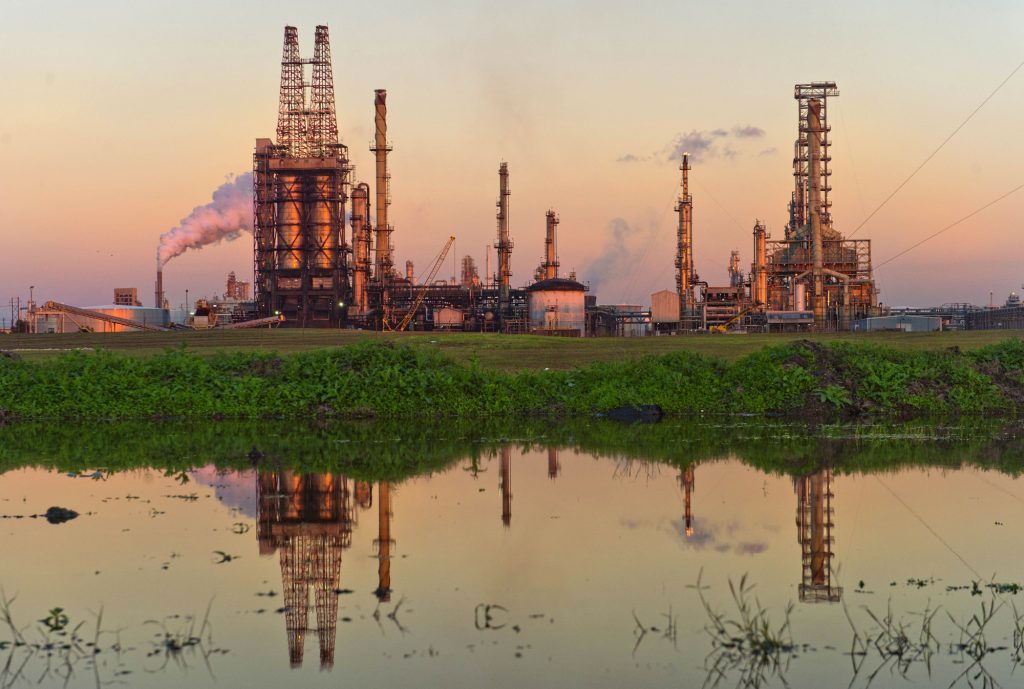
Texas energy companies are pouring millions of dollars into Washington state to fight a ballot measure that, if passed, would create the nation’s first carbon fee, raising the cost of gasoline and other fossil fuels and likely hurting demand for petroleum products.
The fee, essentially a tax on carbon emissions, is considered by environmentalists, economists and even some oil companies as a market-based approach to slowing the pace of climate change by providing incentives to use energy sources that produce less carbon dioxide, a greenhouse gas that traps the sun’s heat and contributes to global warming. Fossil fuels, such as coal, oil and natural gas, are among the largest sources of carbon dioxide emissions.
If the initiative passes, it could provide the impetus for carbon fees or taxes across the country, said Aseem Prakash, a University of Washington political science professor and founding director of the Center for Environmental Politics at the University of Washington.
“If the yes people succeed here,” Prakash said, “then first of all, it will demonstrate that there’s popular support and second, it will give an empirical basis to claim that a carbon tax or a carbon fee actually does not hurt economic growth.”
The companies argue that the carbon fee would be ineffective because the proposal excludes some large carbon polluters that are considered energy intensive and compete in global markets, a definition that could include pulp and paper manufacturers, maritime companies and the aircraft maker Boeing, one of the state’s biggest employers. The initiative also exempts a coal-fired power plant near Centralia,Wash. until it shuts down in 2025.
Coal is one on biggest producers of greenhouse gases.
“We agree that there’s a carbon mechanism that can be put in place but it’s got to be fair,” Bieber said. “It can’t exempt the largest polluters, it can’t unfairly put the burden on families and consumers and it’s got to provide some assurances that carbon emissions will, in fact, be reduced.”
But perhaps the biggest concern among energy companies is that the initiative would open the door for states to adopt their own brands of carbon taxes or fees, creating a maze of varying systems and costly administrative nightmare for companies trying to comply with 50 different versions of a carbon charge. BP, for example, has joined other oil companies, such as Exxon Mobil, that have called on Congress to adopt a national carbon tax that would be the same in all states.
“BP supports a well-designed price on carbon that is clear, flexible, efficient and can be applied consistently across the economy,” the company said in a statement.
At least 10 states, including Washington, have considered carbon taxes and fees, although none have to yet to pass them, according to the New York research firm Rhodium Group. Internationally, several European countries and Canadian provinces have adopted carbon taxes of some sort.
The idea behind carbon taxes and fees is simple. By raising the costs of fuels that emit carbon dioxide, consumers and businesses will turn to alternatives, creating bigger markets for electric cars or solar and wind power and encouraging investment in cleaner forms of energy that ultimately reduce greenhouse gases.
This is not the first time that Washington voters have considered a carbon tax or fee. In 2016, a carbon tax proposal, Initiative 732, was rejected decisively, with nearly 60 percent of voters opposing the measure.
Supporters of the initiatives say this time is different because Initiative 1631 earmarks money raised from carbon fees for specific measures to shrink the carbon footprint of power generation, such as investing in renewable energy, and help communities cope with the effects of climate change. The state has suffered at least five wildfires that each burned more than 100,000 acres in the last five years, according to data from the National Interagency Fire Center, a support center for wildland firefighting based in Boise, Idaho. In 2015, the state, well known for its rain, was gripped with extreme drought conditions.
“What 1631 does is it identifies a future in which Washingtonians have more choices,” said Mike Stevens, the Washington state director for the Nature Conservancy, a national environmental advocacy group. “We will be stimulating investments in new and emerging technologies that are cleaner and sustainable and profitable for Washington businesses.”
The Nature Conservancy is the largest donor to the Yes on 1631 campaign, contributing more than $1.2 million. The Yes campaign has raised more than $6.5 million.
That pales in comparison to the money raised for the No campaign. Phillips 66 and BP, which each have refineries in the state, contributed $7.2 million and $6.4 million, respectively. Before its merger with Marathon Petroleum of Ohio, the San Antonio refiner Andeavor, which also operated a refinery in the state, contributed $4.3 million.
Valero recently gave $495,000 to No campaign. Koch Industries, run by the influential backer of conservative causes, Charles Koch, recently contributed $300,000.
This article first appeared on the Houston Chronicle – an Energy Voice content partner.For more from the Houston Chronicle click here.
Recommended for you
